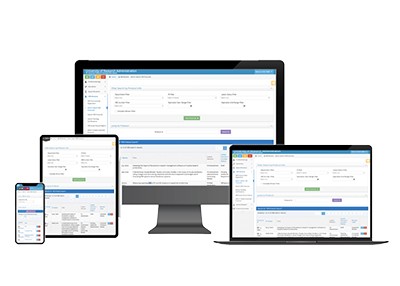IMPORTANT INFORMATION AND REVISION NOTES
- PFI- Technology Translation (PFI-TT) projects will be funded for up to $550,000 for 18-24 months per award; approximately 15-35 awards are anticipated. PFI-Research Partnerships (PFI-RP) projects will be funded for up to $1,000,000 for 36 months; approximately 10-20 awards are anticipated.
- NSF Innovation Corps (I-CorpsTM) Teams awards no longer convey the lineage required to submit a PFI proposal.
Any proposal submitted in response to this solicitation should be submitted in accordance with the NSF Proposal & Award Policies & Procedures Guide (PAPPG) that is in effect for the relevant due date to which the proposal is being submitted. The NSF PAPPG is regularly revised and it is the responsibility of the proposer to ensure that the proposal meets the requirements specified in this solicitation and the applicable version of the PAPPG. Submitting a proposal prior to a specified deadline does not negate this requirement.
Synopsis of Program:
The Partnerships for Innovation (PFI) Program within the Division of Translational Impacts (TI) offers researchers from all disciplines of science and engineering funded by NSF the opportunity to perform translational research and technology development, catalyze partnerships and accelerate the transition of discoveries from the laboratory to the marketplace for societal benefit.
PFI has five broad goals, as set forth by the American Innovation and Competitiveness Act of 2017 (“the Act”, S.3084 — 114th Congress; Sec. 602. Translational Research Grants): (1) identifying and supporting NSF-sponsored research and technologies that have the potential for accelerated commercialization; (2) supporting prior or current NSF-sponsored investigators, institutions of higher education, and non-profit organizations that partner with an institution of higher education in undertaking proof-of-concept work, including the development of technology prototypes that are derived from NSF-sponsored research and have potential market value; (3) promoting sustainable partnerships between NSF-funded institutions, industry, and other organizations within academia and the private sector with the purpose of accelerating the transfer of technology; (4) developing multi-disciplinary innovation ecosystems which involve and are responsive to the specific needs of academia and industry; (5) providing professional development, mentoring, and advice in entrepreneurship, project management, and technology and business development to innovators.
In addition, PFI responds to the mandate set by Congress in Section 601(c)(3) of the Act (Follow-on Grants), to support prototype or proof-of-concept development work by participants with innovations that because of the early stage of development are not eligible to participate in a Small Business Innovation Research Program or a Small Business Technology Transfer Program.
Finally, PFI seeks to implement the mandate set by Congress in Section 102(c)(a) of the Act (Broader Impacts Review Criterion Update) by enhancing partnerships between academia and industry in the United States, and expanding the participation of women and individuals from underrepresented groups in innovation, technology translation, and entrepreneurship.
This solicitation offers two broad tracks for proposals in pursuit of the aforementioned goals:
The Technology Translation (PFI-TT) track offers the opportunity to translate prior NSF-funded research results in any field of science or engineering into technological innovations with promising commercial potential and societal impact. PFI-TT supports commercial potential demonstration projects for academic research outputs in any NSF-funded science and engineering discipline. This demonstration is achieved through proof-of-concept, prototyping, technology development and/or scale-up work. Concurrently, students and postdoctoral researchers who participate in PFI-TT projects receive education and leadership training in innovation and entrepreneurship. Successful PFI-TT projects generate technology-driven commercialization outcomes that address societal needs.
The Research Partnerships (PFI-RP) track seeks to achieve the same goals as the PFI-TT track by supporting instead complex, multi-faceted technology development projects that are typically beyond the scope of a single researcher or institution and require a multi-organizational, interdisciplinary, synergistic collaboration. A PFI-RP project requires the creation of partnerships between academic researchers and third-party organizations such as industry, non-academic research organizations, federal laboratories, public or non-profit technology transfer organizations or other universities. Such partnerships are needed to conduct use-inspired research on a stand-alone larger project toward commercialization and societal impact. In the absence of such synergistic partnership, the project’s likelihood for success would be minimal.
The intended outcomes of both PFI-TT and PFI-RP tracks are: a) the commercialization of new intellectual property derived from NSF-funded research outputs; b) the creation of new or broader collaborations with industry (including increased corporate sponsored research); c) the licensing of NSF-funded research outputs to third party corporations or to start-up companies funded by a PFI team; and d) the training of future innovation and entrepreneurship leaders.
WEBINARS: Webinars will be held to answer questions about the solicitation. Registration will be available on the NSF Partnerships for Innovation website (https://www.nsf.gov/PFI). Potential proposers and their partners are encouraged to attend.
Full Solicitation. NSF 23-538
Limit on Number of Proposals per Organization:
There is no limit on the number of PFI-TT proposals an organization may submit to the deadlines of this solicitation. However, an organization may not submit more than one (1) new or resubmitted PFI-RP proposal to a deadline of this solicitation. This eligibility constraint will be strictly enforced. If an organization exceeds this limit, the first PFI-RP proposal received will be accepted, and the remainder will be returned without review. An organization may not receive more than two (2) awards from a submission deadline of this solicitation.
Limit on Number of Proposals per PI or co-PI: 2
A PI or co-PI may submit up to two (2) proposals to the solicitation deadlines. These could be two (2) proposals to PFI-TT or one (1) proposal each to PFI-TT and PFI-RP, subject to the organizational limits described above. A PI or co-PI will not receive more than one (1) award per solicitation deadline. PIs with currently active PFI awards are requested to complete their then-current project before submitting a new PFI proposal. Any duplicate, substantially similar or equivalent proposal submitted concurrently for review to the solicitation will be returned without review.
A PI or co-PI may resubmit a proposal that was previously declined under a previous PFI solicitation deadline; however, the new proposal must be significantly improved and be responsive to the major comments or concerns resulting from the prior NSF review. A resubmission must include a supplemental document that includes the previous proposal number, a summary of the NSF reviewers’ comments and the PI's response to those comments (see Section V.A.J. below). The revised proposal will be subject to a new NSF merit review.
Internal Proposals. Please provide a concept paper of no more than one page addressing the essential elements of your PFI-RP proposal and how it aligns with the solicitation and NSF’s review criteria. PFI-TT proposals do not need an internal competition.
Deadlines. Internal proposals are to be submitted by August 15, 2023 for the September deadline, and November 15th for the January 2024 deadline.




